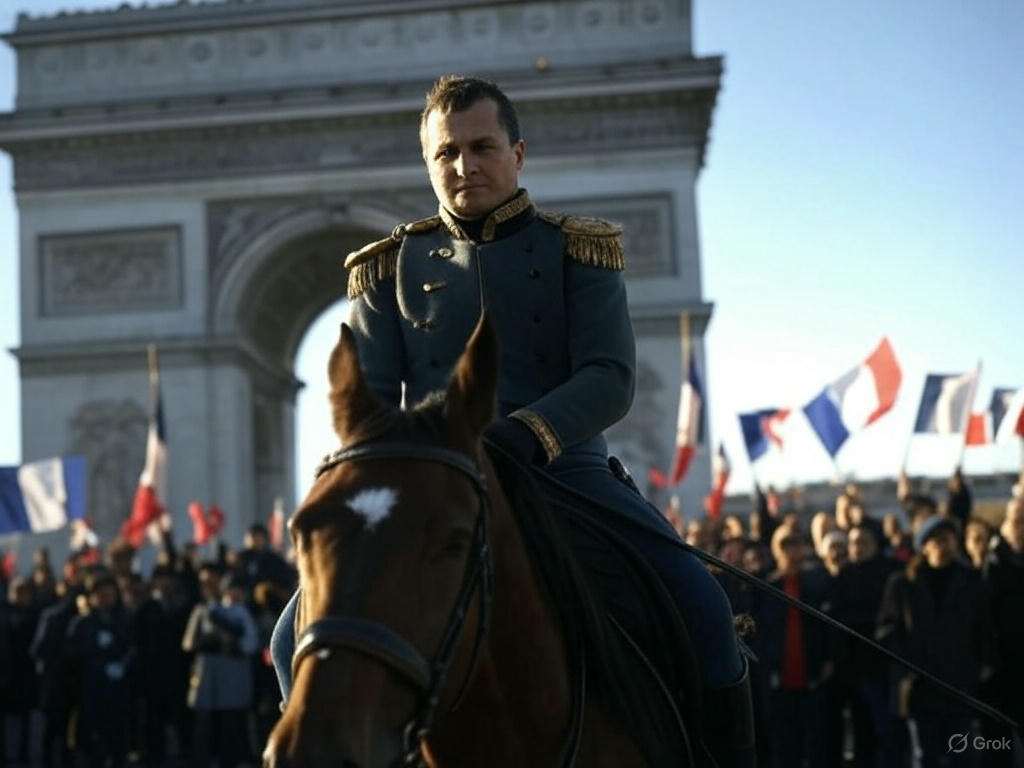France – The Emperor's Triumphant Return – March 20, 1815
TLDR;
- Event: Napoleon Bonaparte returned to Paris on March 20, 1815, after escaping exile from the island of Elba, marking the start of the Hundred Days period.
- Significance: His return showcased his enduring charisma and influence, as soldiers and citizens rallied to his cause, leading to the temporary restoration of his rule.
- Impact: The Bourbon monarchy, under King Louis XVIII, was forced to flee Paris on March 19, 1815, as Napoleon approached.
- Legacy: This event set the stage for the Battle of Waterloo, which ultimately ended Napoleon’s bid to reclaim his empire.
–
Story
The streets of Paris buzzed with an electric anticipation as whispers of a legend’s return spread like wildfire. On March 20, 1815, the city held its breath, and then erupted in a cacophony of cheers as Napoleon Bonaparte, the once-exiled Emperor, rode triumphantly into the heart of France. His return was nothing short of miraculous, a testament to his enduring charisma and the loyalty he inspired.

Just a year prior, Napoleon had been exiled to the island of Elba, his empire seemingly dismantled and his power stripped away. Yet, the man who had once ruled Europe was not content to fade into obscurity. With a handful of loyal followers, he escaped Elba and landed on the French coast at Golfe-Juan on March 1, 1815. As he marched toward Paris, soldiers sent to arrest him instead joined his cause, captivated by his vision and presence. This happened progressively, with a famous incident at Laffrey where he reportedly said, ‘If there is any man among you who would kill his Emperor, here I am.’
By the time he reached Paris, Napoleon was not just a man returning from exile; he was a symbol of hope and defiance. The Bourbon monarchy, reinstated in his absence, saw King Louis XVIII flee Paris on March 19, 1815, as Napoleon approached, leading to the restoration of Napoleon’s rule. While many people did welcome Napoleon back, it is important to note that not all of France was uniformly supportive. There were regions and individuals who remained loyal to the Bourbon monarchy or were wary of Napoleon’s return.
This dramatic return set the stage for a final, desperate bid to reclaim his empire. But the world had changed, and the coalition forces were determined to stop him. The Hundred Days would culminate in the fateful Battle of Waterloo, where Napoleon’s dreams of glory would meet their end.
Napoleon’s return to Paris was a moment of high drama and historical significance, a testament to the power of one man’s influence over a nation.
–
| Would a different strategy have changed the outcome of Napoleon’s final campaign? |